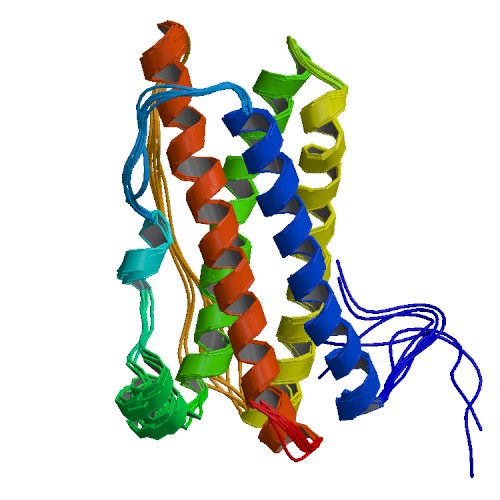Mechanism
According to a study performed in 1999, the hormone prolactin (pictured to the right) is linked to kidnapping behavior. Prolactin is thought to motivate penguin pairs to return to their chicks after spending time away from them to eat. Interestingly, high levels of circulating prolactin are found in both actual penguin parents and failed breeding pairs. A study into the possible effects of prolactin on Emperor Penguin kidnapping behavior found a 77% probability of kidnapping in failed breeding pairs, but when prolactin levels were artificially suppressed the kidnapping declined by a significant amount (4.5 times lower). It’s likely that failed breeding pairs respond parentally to chicks that are not their own due to the influence of prolactin. They may then abandon the chicks, and this is thought to occur when the parents are unable to recognize the vocal calls of the chick.
